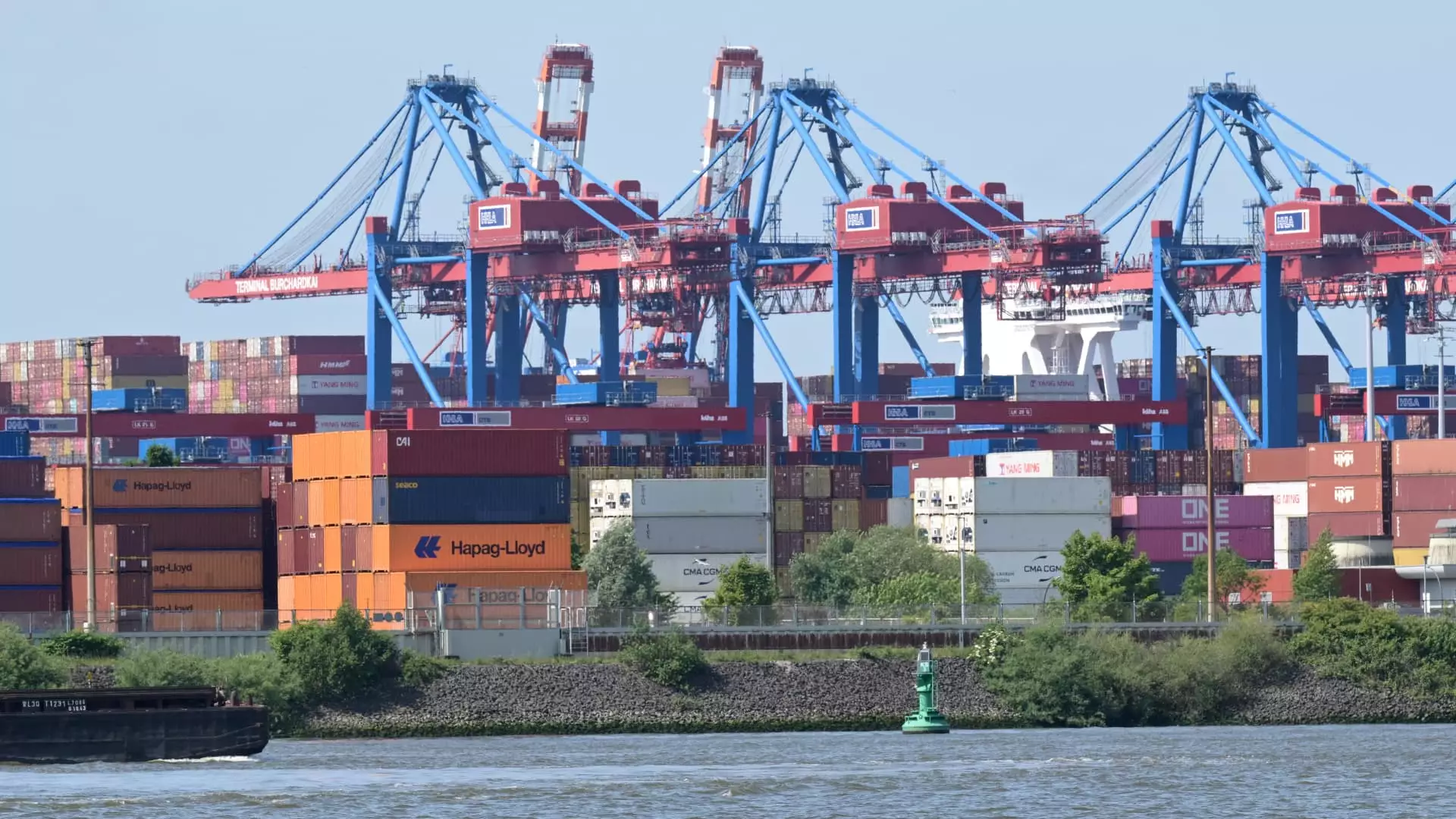As the clock ticks toward a potentially devastating deadline, the ongoing negotiations between the United States and the European Union reveal deep cracks in a partnership historically viewed as a cornerstone of global economic stability. The looming threat of tariffs of up to 50% on EU imports to America underscores not just a threat to economic prosperity but exposes a troubling decline in diplomatic finesse and shared vision. This standoff is emblematic of a broader crisis in transatlantic relations—where economic interests are increasingly viewed through a lens of nationalism and protectionism rather than partnership and mutual growth.
The current impasse reflects more than just economic disagreements; it signals a failure of leadership and strategic foresight from both sides. Instead of working collaboratively to resolve their differences, Washington and Brussels seem caught in a cycle of suspicion and short-term thinking that jeopardizes decades of economic integration. For the EU, the temporary pause on retaliatory measures feels less like a tactical pause and more like a tantalizing glimpse of their limited leverage in a process dominated by uncertainty and delayed commitments.
A Diminishing Alliance in a Changing Global Arena
Few facets of global geopolitics illustrate the fragility of international alliances more starkly than the U.S.-EU trade frictions. With trade valued at nearly two trillion euros annually, the stakes could not be higher. Yet, the unwillingness to craft a comprehensive, binding agreement reveals a troubling shift away from pragmatic cooperation toward transactional brinkmanship. The EU’s declaration that only an agreement “in principle” is feasible—given the 90-day deadline—raises doubts about whether long-term strategic interests can be preserved amidst short-term political maneuvering.
The recent developments reflect a broader trend of loosening transatlantic bonds. What was once a unified front advocating free trade and multilateral diplomacy seems increasingly fragmented by domestic political pressures. The EU’s openness to signing a simplified “heads of terms” agreement, similar to the UK’s post-Brexit arrangement, hints at a recognition that complexity and detail could derail negotiations altogether. But this piecemeal approach risks shortchanging both sides, surrendering the possibility of a sustainable, mutual-benefit deal in favor of expedients that may only serve to deepen mistrust.
Economic Power Dynamics and the Rise of American Economic Nationalism
The revival of protectionist rhetoric from figures like former President Donald Trump underscores a broader ideology rooted in economic nationalism—a rejection of globalization’s benefits in favor of safeguarding national industries. While defending domestic jobs is a legitimate concern, the aggressive tariffs threaten to destabilize an already fragile multilateral system. The U.S. position that the EU’s trade policies are “unfair” oversimplifies complex global supply chains and economic interdependence, ignoring the fact that mutual benefits arise from cooperative regulation and fair competition.
Furthermore, the European Union’s trade surplus of 198 billion euros on goods highlights the asymmetries that continue to fuel mistrust. The bloc’s deficit in services—around 148 billion euros—paints a picture of a globalized economy where no country is truly self-sufficient. The question is whether both parties can recognize these interconnected realities or whether they will succumb to zero-sum thinking that fuels hostility. The EU’s relative openness contrasts with the U.S.’s growing protectionist stance, risking a two-way decoupling that could slow global economic growth and innovation.
The Path Forward: Fragmentation or Reinvention?
Looking ahead, it’s evident that a comprehensive deal remains elusive—if not outright impossible in the short window before the July 9 deadline. Instead, what seems more probable is a fragmentation of the transatlantic trade framework, driven by a strategic shift away from partnership and toward unilateral interests. This scenario threatens not only economic stability but also the broader international order predicated on cooperation and multilateralism.
The European Commission’s tentative stance and the lukewarm enthusiasm from U.S. officials reflect an acceptance of diminished expectations. While some leaders speak of “an agreement in principle,” the reality on the ground is that both sides are more interested in saving face than forging a durable solution. The risks of such a superficial accord fading into irrelevance could leave the global economy more fractured, vulnerable to geopolitical shocks and to the rising influence of emerging powers that do not share Western liberal values.
In this high-stakes game of economic brinkmanship, the true losers will be ordinary citizens and industries caught in the crossfire. Instead of building a resilient, innovative partnership tailored to the complexities of today’s global challenges, the U.S. and EU appear poised to succumb to short-term political expediency, delaying real progress and risking a steep decline in trust and cooperation.

